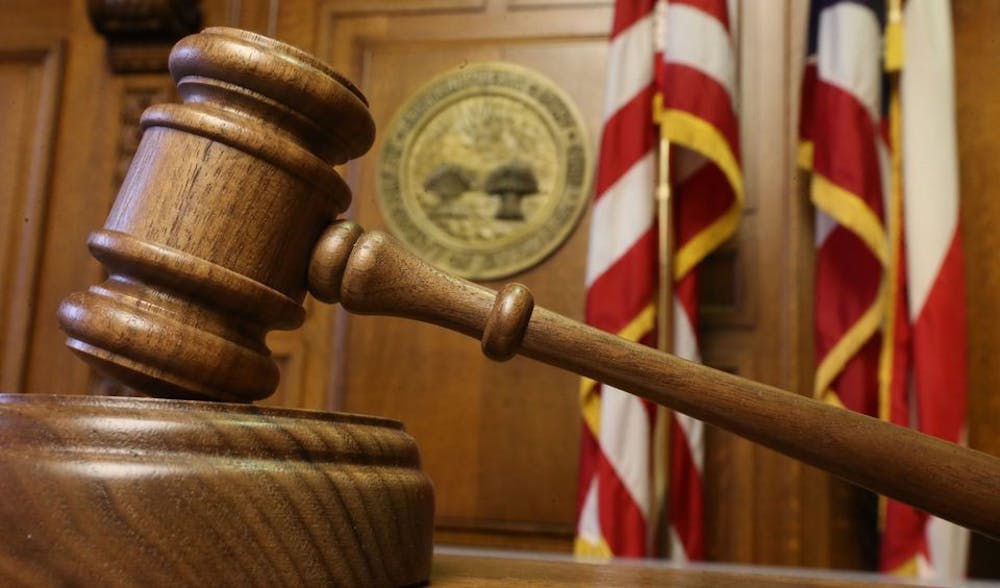Editor’s Note: This article includes mention of sexual assault.
In 1981, Alice Sebold was raped. A few months later, her attacker was put behind bars. Sebold had written a memoir about the experience, titled "Lucky," and it later launched her career. She's gone on to write hits like "The Lovely Bones," which was adapted to a best-selling movie. Meanwhile, the man sentenced for these crimes, a Black man named Anthony Broadwater, spent 16 years in prison. He was proven innocent of the crime just last month.
Broadwater attempted to overturn his sentence five times since 1982, and he had been denied parole five times because he wouldn't admit to a crime he didn't commit. Even after being released in 1999, he still fought to prove his innocence. It took him 40 years to do so.
This subject is difficult to talk about, but that difficulty makes it all the more necessary to discuss. Sebold was indeed raped, that is not being questioned and I do not intend to cast doubt on her traumatic experience. Broadwater, however, was falsely accused of being her rapist.
As the story goes, Broadwater had walked past her on the street months after her rape, and Sebold claimed to recognize him. Police arrested him and had Sebold pick him out of a lineup. She had failed to identify him in the lineup, but the police proceeded anyway, with her insisting Broadwater and the person she picked in the lineup looked identical. Sebold describes the experience as the police and prosecutors "coaching" her testimony.
Coaching an eyewitness for testimony is a common practice, but it becomes complicated in situations like this, because for all intents Sebold believed she had properly identified her assaulter. Since evidence was slim, it meant her testimony was even more key in convicting Broadwater.
This shows just how negligent the justice system can be. Broadwater, despite fighting to prove his innocence for decades, was only able to make headway in his efforts due to luck.
The memoir Sebold wrote about the experience, "Lucky," was in production to be adapted to a feature film when one of the producers had noticed holes in the story. The producer, Timothy Mucciante, then hired a private investigator to look into the case in more detail.
It was found that, beside Sebold's testimony, the only evidence was microscopic hair analysis, which the Department of Justice had since denounced as unreliable as forensic evidence. It was the private investigator who ultimately did the due diligence of looking into the details of the case.
The situation shows how much a single person's testimony can matter in a case, especially if the person is a white woman. What Sebold had to go through was awful, and I don't aim to make light of that. All the same, her testimony was the driving factor into getting an innocent Black man put in jail for 16 years of his life and having to live as a registered sex offender until recently.
Broadwater had even said he and his wife didn't want to have children because of his criminal record. It's difficult to not compare the situation to the countless innocent Black men lynched for their supposed crimes.
Sebold publicly made her apology to Broadwater a week after his exoneration — an apology which only spans 400 words. She acknowledges the dynamics present in the case.
"Today, American society is starting to acknowledge and address the systemic issues in our judicial system that too often means that justice for some comes at the expense of others,” she said in a Medium article. “Unfortunately, this was not a debate, or a conversation, or even a whisper when I reported my rape in 1981."
Sebold seems to ignore just how much scholarship there already was about the justice system’s racial bias at the time. Still, Broadwater has accepted her apology, but I struggle to come to terms with my feelings on this.
Everything about this case is a confluence of the worst America has to offer. A woman was raped and accuses an innocent passerby of being the perpetrator. She fails to identify him in a lineup, but the justice system moves forward and imprisoned him anyways. She makes millions, and his life is irreparably damaged while the mistake is only acknowledged 40 years later.
What happened to Alice Sebold is a tragedy and one no one should have to live through, but she played a significant part in ruining an innocent Black man's life. She is a victim of an awful assault, but her testimony, based on uncertainty, was what put Anthony Broadwater in prison.
While he found it in his heart to forgive her, I don't think I can say I'd do the same






